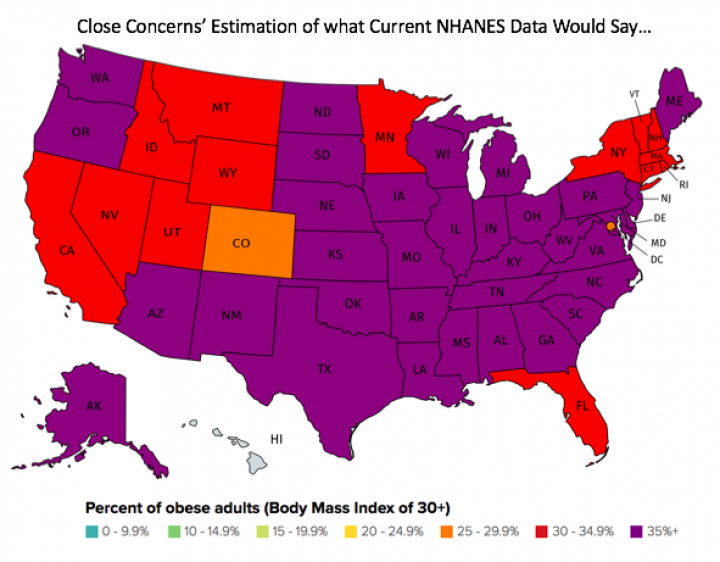The Cost of Soaring State Obesity Rates
Troubling new findings in the October issue of Obesity reveal that people who have obesity yet are in all other respects healthy – with a body mass index greater than 30 but no risk factors for disease – will still cost society from $17,000 to over $36,000 in their lifetime.
These costs mostly stem from medical care for obesity-related chronic diseases and lost productivity. Though a person with obesity may initially have no risk factors for conditions like type 2 diabetes, heart disease, and certain cancers, most will eventually become ill. Chronic disease results in more individual spending on insurance premiums and copays for medical care, but increased costs to the system also raise premiums for everyone else with insurance. The lost productivity resulting from disability or time off work costs society even more.

While disturbing on an individual level, the aggregate of these costs is also troubling. The Behavioral Risk Factor Surveillance System (BRFSS) estimates that all states in 2016 had more than 20% of adults with obesity and five states had greater than 35% of adults with obesity. However, the BRFSS tracks self-reported data; the National Health and Nutrition Examination Survey (NHANES), which assesses data from physical examinations, finds obesity rates to be about 7% higher. With this discrepancy in mind, Close Concerns estimates that all states actually had more than 25% of adults with obesity and 35 states had greater than 35% of adults with obesity in 2016. Combined with the spending associated with each individual, the data represents staggering overall costs that will only grow if obesity rates continue to rise.
It is typically very difficult for individuals with obesity to lose weight and keep it off. However, plans like the Diabetes Prevention Program (DPP) are proven to significantly reduce the risk of chronic illnesses like type 2 diabetes through diet, exercise, and behavior modification counseling. Though the program is available at many local YMCAs, people often do not know about it. One key to slashing the rising costs of obesity may be to publicize prevention programs like the DPP and provide more opportunities for individual advising. Digital approaches to weight loss may also offer some solutions. Online programs like Omada Health and Virta Health offer individualized weight loss counseling, and wearable devices like Apple Watch and Fitbit allow users to access health goals and feedback. The future of obesity prevention likely lies in a combination of these tools alongside traditional dietary advice and coaching.


